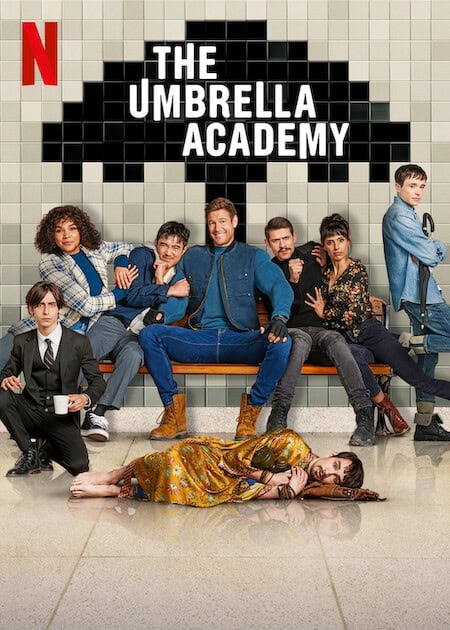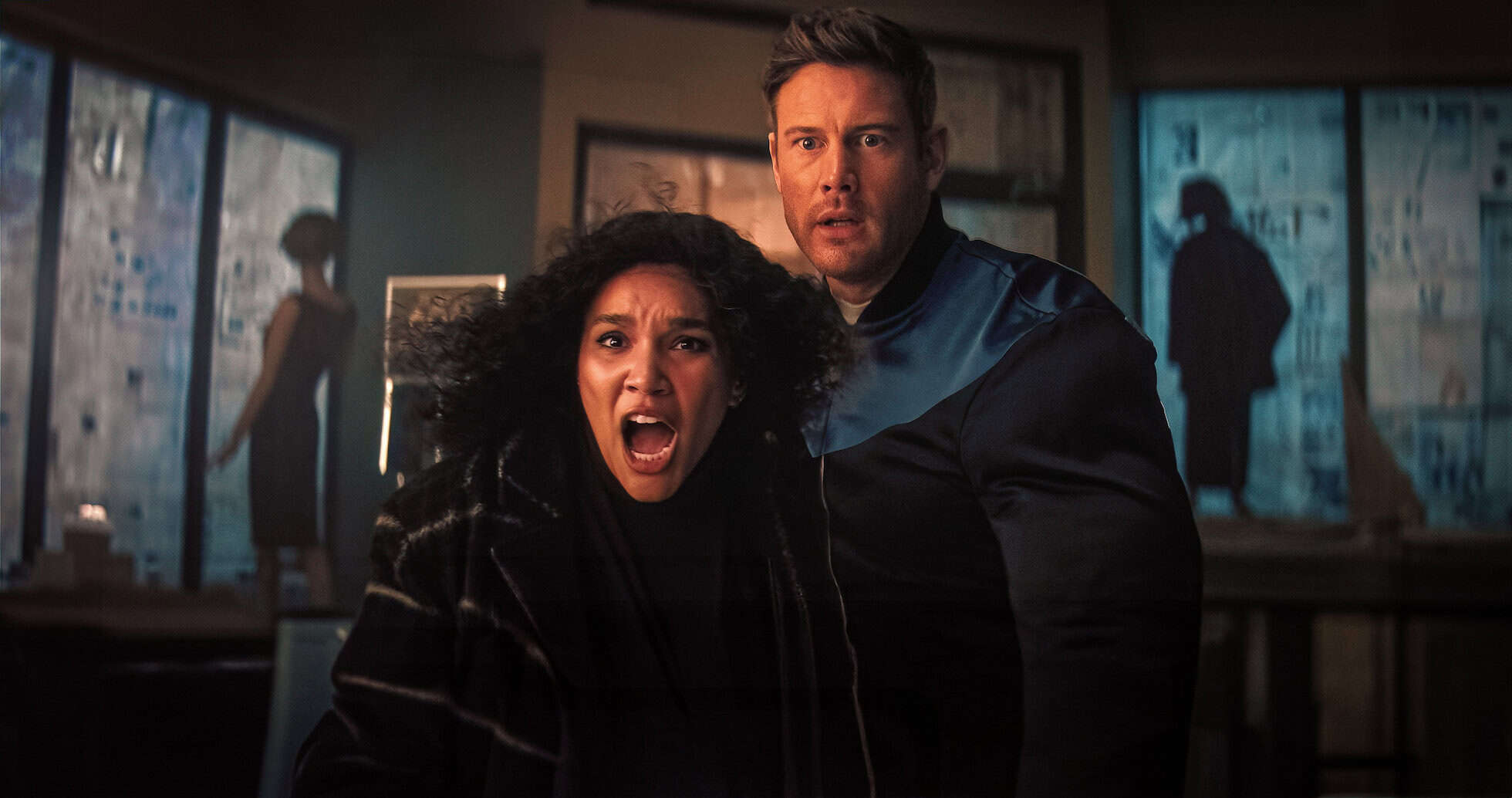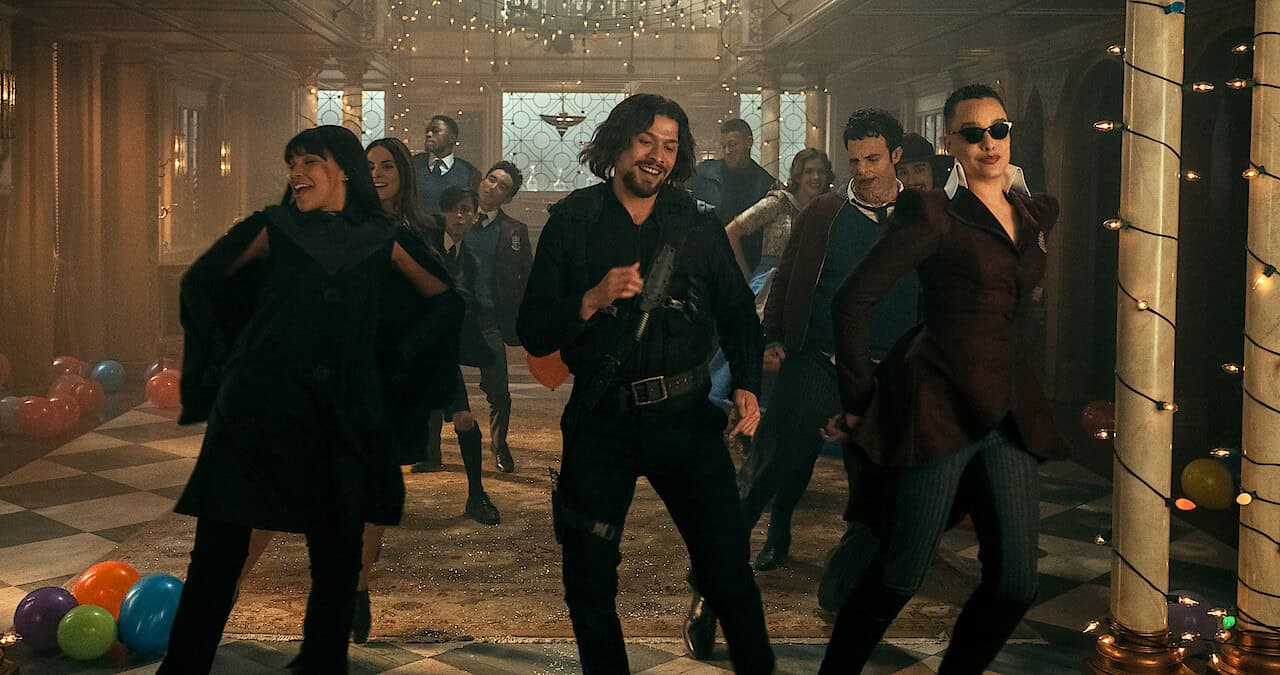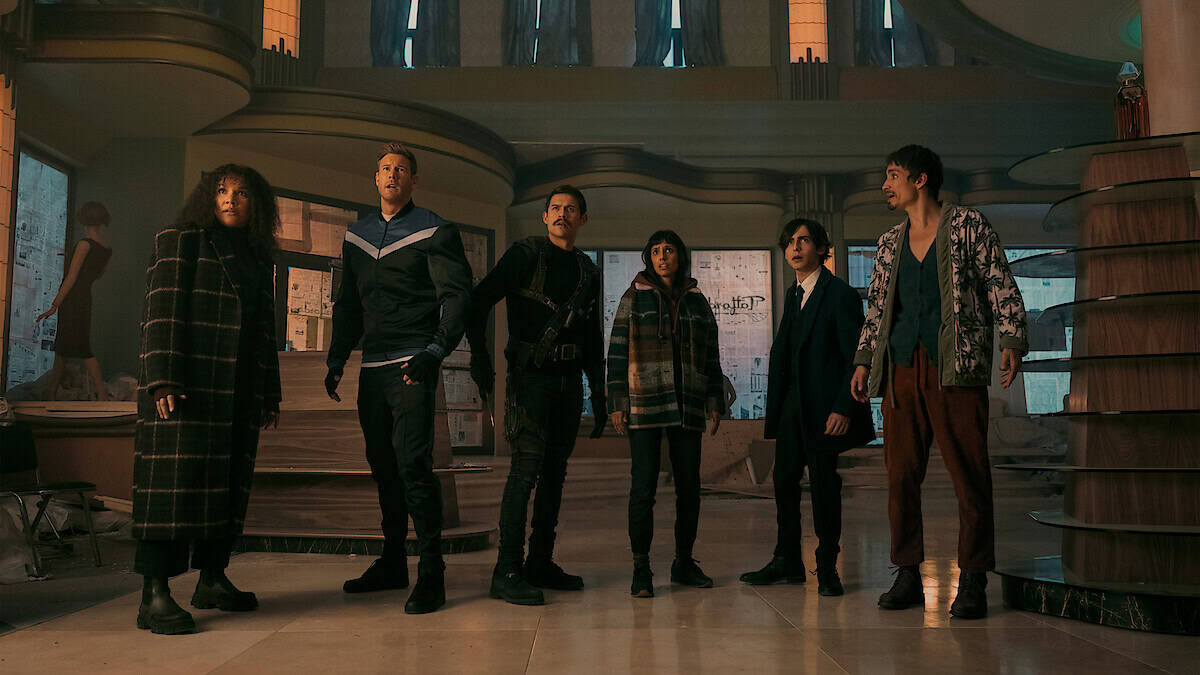After four seasons of time-travel paradoxes, family dysfunction, and apocalyptic drama, The Umbrella Academy officially wrapped with Season 4 on August 8, 2024. With just six episodes, the final chapter offered closure—albeit a fast-paced one—to the saga of the Hargreeves siblings. But while Netflix confirmed there won’t be a Season 5, both showrunner Steve Blackman and original comic creator Gerard Way have hinted that this isn’t necessarily the end of the line for the world they built.
Why Season 5 Was Never the Plan
Unlike many series that get canceled prematurely, The Umbrella Academy was always intended to be a four-season story. Steve Blackman previously stated that he pitched the show to Netflix with a clear beginning, middle, and end, and Season 4 was designed to be the final act. The shorter six-episode format was a creative decision to deliver a more focused narrative, though some fans felt it left too many threads hanging.

Despite the show’s consistent popularity and Emmy nominations, Netflix and the creators chose not to overextend the story. Actor Tom Hopper (Luther) described the final season as “emotionally complete,” while Robert Sheehan (Klaus) suggested that the cast was satisfied with the arc’s conclusion.
Season 4 Recap: A Powerless Reset and Unanswered Questions
Season 4 picks up after the siblings reset the universe—again—leaving them powerless and separated in a world shaped by their manipulative father, Reginald Hargreeves. Their new timeline introduces the enigmatic organization known as The Keepers and references to “Jennifer”—a mystery that, frustratingly for some viewers, was never fully resolved.
Despite some rushed pacing, the season delivered impactful emotional beats and a climactic showdown that, true to form, threatened yet another reality. Some fans loved the thematic resolution; others felt it was too tidy—or too vague.
Spin-Offs: The Next Phase of the Umbrella-Verse?

Although Season 5 is off the table, the appetite for Umbrella Academy-related content remains strong. Steve Blackman has teased multiple potential spin-offs that could breathe new life into the universe. Some of the most promising ideas include:
1. The Commission’s Origin
The shadowy, time-policing Commission has always operated just out of reach, with its mid-century aesthetic and morally murky missions. A deeper dive into its formation, the Handler’s past, or a younger Herb and Dot could offer a stylish and sinister look at time management gone rogue.
2. Hazel & Cha-Cha: A Prequel
The quirky, violent duo made a huge impression in Season 1. A prequel series showing their early missions could tap into Fargo-like dark humor and moral complexity. Their popularity has already spawned graphic novels, so a screen adaptation could easily follow.
3. Klaus’s Wild Ride
Klaus remains one of the franchise’s most beloved characters, and Gerard Way has already penned his solo adventures in You Look Like Death, a comic miniseries chronicling Klaus’s exploits in L.A. A live-action series based on this could blend Euphoria-style chaos with supernatural flair.
4. The Sparrow Academy
First introduced in Season 3 as alternate-universe counterparts, the Sparrows offer a darker, more corporate take on superpowered family drama. While initial talks of a spin-off stalled, fan interest remains high—especially for characters like Ben and Sloane.
5. Reginald Hargreeves: The Alien Among Us
One of the show’s longest-running mysteries is Reginald’s extraterrestrial origin. A spin-off exploring his life before arriving on Earth, his motives, and the secret to his immortality could answer lingering questions and offer a completely new sci-fi tone.
6. Lila Pitts & The Next Generation
Introduced in Season 2, Lila remains one of the most compelling newer additions. A series following her post-Season 4 journey—potentially with her and Diego’s child—could set up a second-generation Umbrella Academy-style narrative.
Comics Are Still Expanding the Lore
For fans hungry for more content, Gerard Way and Gabriel Bá’s comic series continues beyond the show. The fourth volume, The Umbrella Academy: Sparrow Academy, is available, and a fifth volume is currently in development. These offer more eccentric world-building and plotlines that diverge significantly from the Netflix adaptation, making them must-reads for diehard fans.
Will Netflix Pull the Trigger?

No spin-offs have been officially greenlit yet, but the ball is clearly in Netflix’s court. The show has proven it can draw viewers, merchandise sales, and critical acclaim. Steve Blackman remains under a development deal with Netflix, and while his slate includes other projects, the Umbrella Academy universe still has room to grow—if the streamer is willing to invest.
In the meantime, The Umbrella Academy may have ended on screen, but its timeline-twisting, emotionally charged universe lives on in comics and the imaginations of fans—and potentially in future spin-offs waiting in the wings.
The Umbrella Academy: Series Overview & Season-by-Season Breakdown
Netflix’s The Umbrella Academy has become one of the most uniquely chaotic and emotionally charged superhero series on television. Based on the comic books by Gerard Way and Gabriel Bá, the show blends time travel, apocalyptic stakes, and family dysfunction with a distinctly stylish flair. Since premiering in 2019, the show has followed the misadventures of the Hargreeves siblings—seven adopted superpowered children raised by the enigmatic Sir Reginald Hargreeves.
As of 2025, the series has run for three seasons, with a fourth and final season on the way. Here’s a comprehensive look at each chapter of The Umbrella Academy.
Season 1 (2019): The Dysfunctional Reunion
Premise: The estranged Hargreeves siblings reunite following the death of their father, Sir Reginald Hargreeves. Despite their resentment toward one another, they must work together to prevent the end of the world—predicted to occur in just a few days.
Key Plot Points:
- Introduction to the seven “Umbrella Academy” siblings, all born on the same day to different mothers under mysterious circumstances.
- The return of Number Five, who had disappeared into a post-apocalyptic future and developed the ability to teleport and time-travel.
- Vanya (Number Seven), initially thought to be powerless, is revealed to have dangerous sound-based powers that were suppressed by Reginald.
- Vanya’s powers spiral out of control, leading directly to the apocalypse.
Major Themes: Family dysfunction, trauma, identity, and control.
Ending: The siblings fail to stop the apocalypse and are forced to time-travel to avoid it, setting the stage for Season 2.
Season 2 (2020): Time-Travel & The 1960s
Premise: After escaping the apocalypse, the Hargreeves find themselves scattered throughout Dallas in the early 1960s. They must reunite, survive the era’s social challenges, and stop another doomsday event tied to the assassination of JFK.
Key Plot Points:
- Each sibling adapts to life in the past: Klaus starts a cult, Allison marries a civil rights activist, and Diego obsesses over saving JFK.
- Vanya develops amnesia and bonds with a rural family.
- The Commission (a time-policing organization) returns to antagonize Five.
- Another apocalypse looms, this time triggered by Vanya again—after she’s tortured by the FBI.
Major Themes: Fate vs. free will, historical injustice, personal growth.
Ending: The Hargreeves stop the 1963 apocalypse and return to their present… only to find things have changed drastically.
Season 3 (2022): The Sparrow Academy & The Kugelblitz
Premise: The Hargreeves return to 2019 expecting their timeline, but discover Reginald adopted a completely different set of superpowered children—The Sparrow Academy. This new timeline brings new enemies, dangerous paradoxes, and a cosmic event called the Kugelblitz that threatens reality itself.
Key Plot Points:
- The introduction of the Sparrow Academy, including a resurrected (but different) version of Ben.
- The universe is destabilized by a “Grandfather Paradox” caused by the siblings’ time meddling.
- The Kugelblitz begins consuming space and time itself.
- Viktor (formerly Vanya) comes out as trans and is accepted by his siblings.
- Allison makes morally questionable decisions to get her lost family back.
- Reginald manipulates all the siblings into entering Hotel Oblivion—secretly a machine designed to reset the universe.
Major Themes: Alternate realities, identity, the consequences of trauma and grief.
Ending: Allison activates the universe reset, killing Reginald. The siblings wake up in a new reality—powerless, altered, and separated. Luther is alive but without Sloane, and Ben appears in a new context, hinting at future twists.
Season 4 (2024): The Final Chapter
The fourth and final season consists of six episodes, concluding the saga of the Hargreeves siblings . Following the universe reset at the end of Season 3, the siblings find themselves powerless in a new timeline orchestrated by their father, Reginald Hargreeves. In this altered reality, they confront new adversaries and grapple with the loss of their abilities while uncovering deeper truths about their family and existence.
New Faces and Returning Favorites
Season 4 introduces new characters, including Dr. Gene and Dr. Jean Thibedeau, portrayed by Nick Offerman and Megan Mullally, respectively. David Cross also joins the cast as Sy Grossman. These additions bring fresh dynamics to the storyline, complementing the returning ensemble of Elliot Page, Tom Hopper, David Castañeda, Emmy Raver-Lampman, Robert Sheehan, Aidan Gallagher, Justin H. Min, Ritu Arya, and Colm Feore.
Critical Reception
The final season received mixed reviews. While some praised the performances and emotional depth, others felt the shortened episode count led to a rushed narrative. On Rotten Tomatoes, Season 4 holds an approval rating of 55%, indicating a divided response from critics .
The Umbrella Academy’s Legacy
Throughout its run, The Umbrella Academy has stood out for its offbeat tone, compelling performances (especially from Elliot Page, Robert Sheehan, and Aidan Gallagher), and its emotionally rich take on superhero tropes. The series has tackled everything from addiction and mental health to grief, time-travel ethics, and LGBTQ+ identity, all wrapped in a punk-rock aesthetic.
The upcoming final season has a lot to live up to—but if it sticks the landing, it could cement The Umbrella Academy as one of Netflix’s most ambitious and emotionally resonant original series.







